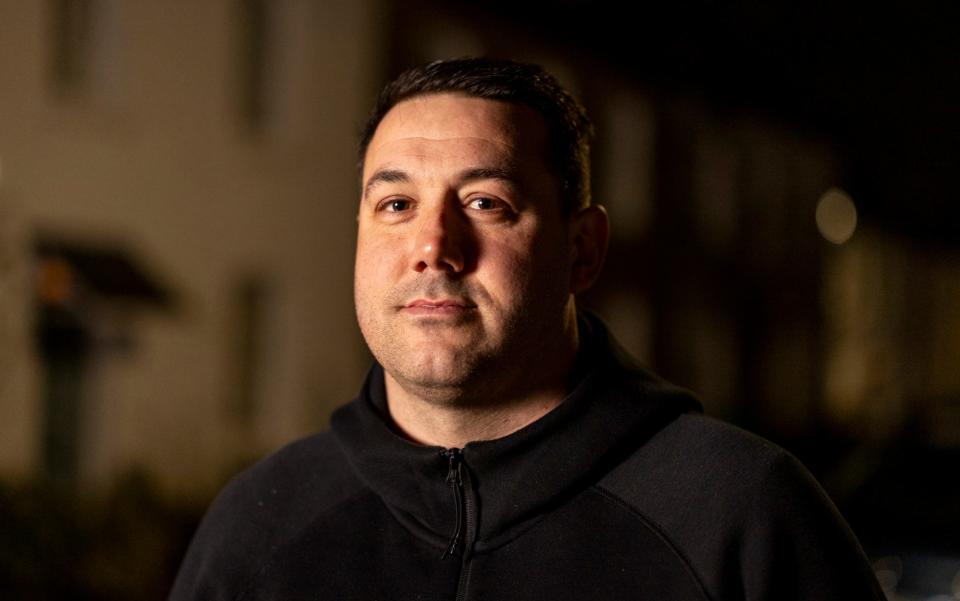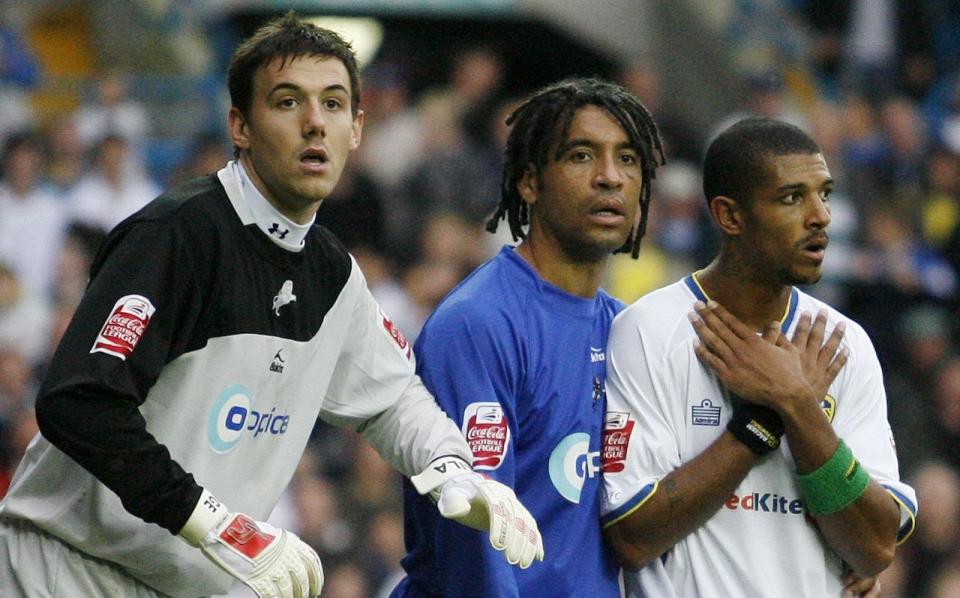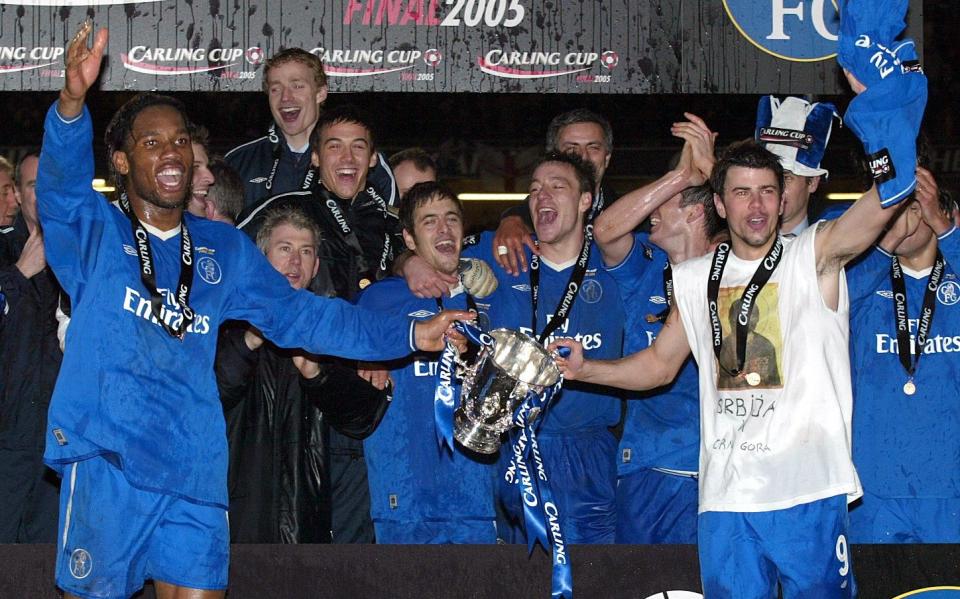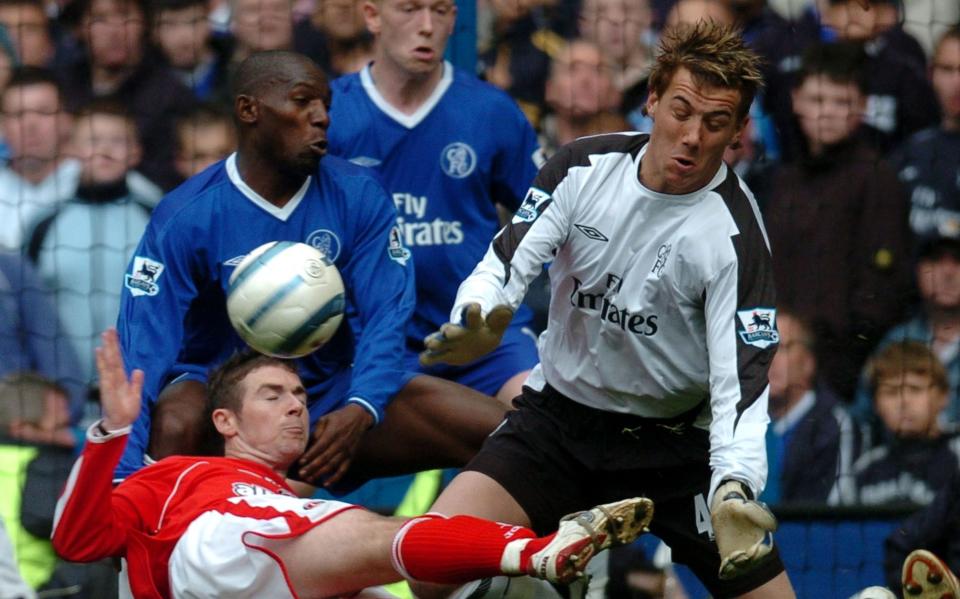Lenny Pidgeley won League Cup with Chelsea – three years later he contemplated suicide

Less than three years after he had been front and centre of Chelsea’s 2005 League Cup celebrations, Lenny Pidgeley found himself locked in an Elland Road toilet paralysed by anxiety.
A few weeks earlier, Pidgeley – covered by his bedsheets and with his curtains drawn – had thought about ending it all. But he had returned to training and Millwall, the club he joined from Chelsea, were short of goalkeepers.
Pidgeley, who was 23 at the time, still cannot recall a single thing about the game, including the result (a 4-2 victory for Leeds United), other than his panic attack. Recalling the day remains an uncomfortable experience.
“It had started during the summer, in the off-season,” Pidgeley said. “I started getting anxiety attacks and I’d be in bed, door locked under the covers with all the curtains closed. Millwall had sent me to the Priory and I hadn’t played for months.
“I’d just got back training a little bit and the goalkeeper who was on loan couldn’t play. I had been feeling a little bit better and the next thing I knew I was playing at Elland Road, first game back.
“I was in the toilet 10 minutes before kick-off having a panic attack. I was dripping with sweat, vomiting, my heart was pumping out of my chest and I was trying to convince myself that my hamstring was going to go. I thought about it so much that I could feel my hamstring actually tightening up.
“Then I was running out there, standing in front of 30,000 people. Three weeks earlier I was thinking about killing myself and now they’re calling me a w-----, and whatever, and I’m just thinking, ‘Oh my God, if you knew what was going on in my head’.

“I got through the game, but I couldn’t tell you what happened or what the result was. I probably blanked it out because I don’t want to remember anything about it. Even talking about it brings it all back. Look, I’m getting hot now, rubbing my head, my mouth’s gone a bit dry.”
‘I wanted to jump off a balcony’
Pidgeley, who left Chelsea in 2006, was scared to make his battle with anxiety and depression public, fearing it would be held against him.
“The panic attacks were uncontrollable to the point where I wanted to jump off a balcony,” Pidgeley said. “I was in a real bad way. I was embarrassed, I didn’t want anyone to know. I felt weak, vulnerable, like my career was over.
“At my first assessment at the Priory, the guy was asking whether I did drugs, whether I smoked, had there been any deaths in the family and the answer was ‘no’ to all of them. I wanted there to be one where it was ‘yes’ so I knew what it was. Eventually, he told me you can have a chemical imbalance in your brain and it can happen.
“I’d have taken every bone in my body broken than what I was going through. It was horrendous. I couldn’t handle it and I was thinking I couldn’t live like that. All I wanted to do was sleep, but I felt worse every time I woke up. I thought that if this carries on, I can’t do it any longer.
“I started taking antidepressants and it kind of controlled it for a while, but it happened again when I was at Newport. Justin Edinburgh, who sadly died a few years ago, was the manager and he was unbelievable with me. It was really scary for it to come back, but he gave me all the time I needed.”
Pidgeley’s situation came to a head during his third major onset of anxiety, at Farnborough in 2018, when the club announced his retirement and mental health problems in a message posted on social media – and later deleted – without his consent.
“I was part-time by then and I hadn’t been at work because I wasn’t feeling well,” Pidgeley said. “On the morning of the game I was having anxiety and panic attacks. I called the manager and said I couldn’t play, but he said, ‘You have to’. They didn’t have a goalkeeper.
“I told him I was quitting football, that I had depression and it wasn’t good for my mental health. Straight away after the game, they just put it out there that I’d retired because of depression. They ended up deleting it after I spoke to them. I couldn’t believe it, it was a disgrace. I’d kept it quiet for 10 or 15 years.”
‘John Terry said, ‘Go and look in your locker’’
Understandably, Pidgeley prefers to remember the good times of his career, in which he played for England at under-16, under-18, under-19 and under-20 level. He has as many Chelsea winners’ medals – the 2005 League Cup and Premier League title – as he made senior appearances for the club.
Sunday’s Carabao Cup final between Chelsea and Liverpool is a repeat of the Millenium Stadium final where Pidgeley was on the substitutes’ bench 19 years ago.
“Carlo Cudicini was suspended, so I was on the bench,” Pidgeley said. “I remember running out for the warm-up and I was like, ‘Whoa, this is big’. I was a Chelsea fan, so it meant a lot to me. One of the lads told me what the win bonus was and then it meant even more.
“I was on peanuts, relatively, at the time. So, for me, the bonus, it was a good few grand and it was the equivalent of two months’ wages.”
Having trailed nearly the entire game, Chelsea won the final in extra time to secure Jose Mourinho’s first trophy as manager and Pidgeley found himself front and centre of the celebrations.

“To win, being a big fan and having friends and family at the game. It was amazing,” Pidgeley said. “They handed out the medals in squad number order. I was number 40 and by the time the whole squad was up there there was no room left. John Terry was about to lift the trophy and there I was right at the front next to the captain.”
Mourinho and Terry also ensured Pidgeley played in the title success that followed at the end of the same season and received a winners’ medal.
“Petr Cech played 95 per cent of the games in that season and Carlo was his No 2, so I hadn’t played at all before the final League game,” Pidgeley said. “Jose called me in the week of that game and said that he was going to put me on and I played the last eight minutes of the final game of the season against Charlton.
“I didn’t think I’d get a Premier League winners’ medal, but JT sorted it out. I remember him saying at training, ‘Go and look in your locker’, and there it was. I’ve got both my medals framed. One day I’ll get round to putting them on the wall.”

‘Bosnich pinned me against the wall by my throat’
Pidgeley, a boyhood Chelsea fan, joined the club as an 11-year-old and signed apprenticeship forms at the age of 16, which earned him the responsibility of cleaning the boots of the senior goalkeepers at the time: Cudicini, Ed de Goey and Mark Bosnich.
In 2019, Pidgeley posted a message on social media that read: “Just seen Mark Bosnich on Sky Sports News and brought so many bad memories of being his boot boy. There’s five players during my career that I Iook back on and think what a p---- and he’s miles ahead in first.”
One particular incident involving Bosnich and his boots sticks in the memory of Pidgeley, who said: “At Harlington, the old training ground, there was one outdoor tap, so there would be loads of us around it trying to clean the boots. We’d get in at 8am and the players would want to wear their boots for training at 10am, so you’re all in a mad rush.
“One morning, I was in the youth team changing room with all the young lads. Bosnich walked in and shouted at me that his boots were still wet. Next thing, he had me by the throat, pinned up against the wall. I had probably just turned 17 and weighed about 12 stone, and I was terrified. I might be wrong, but I don’t think anyone really got on with him.
“It’s come out in the wash how he was living his life back then and he was going through a hard time, so, yes, I’d say hello to him if I saw him now. I’ve probably done things I look back on and think, ‘What an idiot’.”
Asked whether he believed football was linked to his panic attacks, Pidgeley replied: “I’m starting to think it’s not happened since I retired. I still can’t put my finger on it. Who knows? It might have helped if I played now and maybe I wouldn’t have felt I had to kept it all a secret. I probably wouldn’t have locked myself in that toilet at Elland Road.”
Pidgeley started to drink more frequently following his retirement from playing, but, unlike when he was first hit by anxiety, brought the issue into the public domain through social media. He received support from Chris Kirkland, another former goalkeeper, who has spoken out about his mental health and addiction struggles.
“I’m a binge drinker if anything and I’m way more open about things now, so I was feeling a bit down and I went on social media to open up,” Pidgeley said. “It’s important for me to recognise things and stay on top of them after what I’ve been through.”
Pidgeley now runs his own landscaping business and this month celebrated his 40th birthday with his wife, Carla, their five-year-old daughter Everly and his two daughters, Lila and Paige, from a previous relationship.
“I’ve got my family, the business and I’m good at the moment, touch wood,” Pidgeley said. “I’m happier now, but I look back at football with fond memories. I’ve had some massive highs and some massive lows, both in my career and my life.”

 Yahoo Sport
Yahoo Sport 



































































